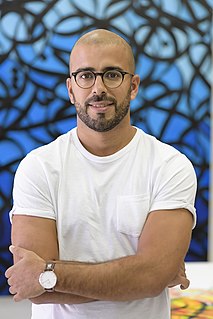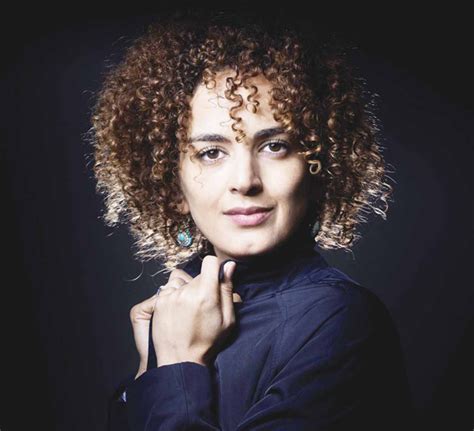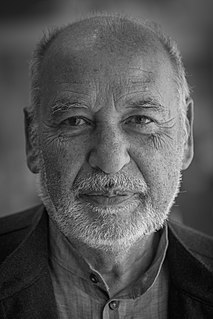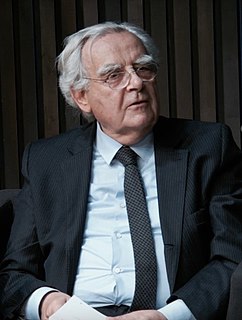A Quote by eL Seed
It was an identity crisis. I was born and raised in France, but I never really felt French, so I needed to find something that I was more connected to. I used to go back to Tunisia every summer, but I was more into the language, my Arabic roots.
Related Quotes
I couldn't know about my culture, my history, without learning the language, so I started learning Arabic - reading, writing. I used to speak Arabic before that, but Tunisian Arabic dialect. Step by step, I discovered calligraphy. I painted before and I just brought the calligraphy into my artwork. That's how everything started. The funny thing is the fact that going back to my roots made me feel French.
My parents left Iran in 1979 and moved to France and then moved to the U.S. My brother was born in France and I was born in New York. I think my parents left France because they felt their kids would never be accepted by French culture. Here they thought we could feel American - that we could feel safe in that way - which was important to them, given what their experiences were in Iran. They used to joke about how I could be president because I was the only one born in America.
I'm educating myself more about world poetry. I know a lot about contemporary American poetry, so I felt I needed to learn more about figures like Borges, Akhmatova, Neruda, etc. I felt I needed a bigger lens to see poetry through. It really helps to see poetry as a world language, and not just something American.
I live in New York now, and miss France quite a bit. Of course, the reality of living in a small village in the south of France was very different than the fantasy I had of living in France. Over the years I spent there, that fantasy was worn away and I found a more realistic version of France than the one I began with. I wouldn't say the spell ever goes away, but transforms. Now that I understand French culture more intimately, and speak fluent French, I have a different, more solid, relationship to the country.
I went to a mosque in Philadelphia with [my wife] in December 24, 1999. And we we went to this mosque in Philly, and I just had such a strong reaction to the prayer. And I was really emotionally - I felt really grounded at that time. And so to be in this prayer and the imam is doing the prayer in Arabic and I don't understand a word of Arabic but I just remember these tears just coming down my face and it just really connecting to my spirit in a way that felt like I needed to pay attention to that.
When I announced on my Facebook page that I'm coming to Israel, people started telling me that I shouldn't go there, but I figured that if I'm not going to come here, then I guess I can't go back to the United States anymore and I can never go to Russia again and I should probably never go back to Germany and I should probably never go back to France and I should probably never go back to England....All I see here is a really beautiful city.






























